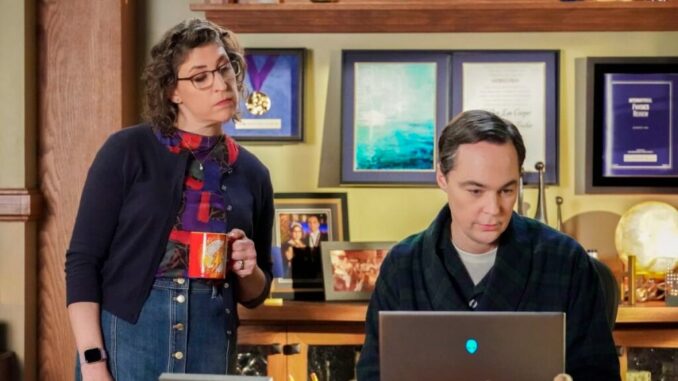
Young Sheldon’s Season 7 finale had everyone talking — but not for the reasons the showrunners probably intended. The final joke, meant to tie up the season with a witty punch, instead left a significant number of fans baffled. Was it a deliberate twist, an inside reference gone wrong, or just poor timing?
Let’s dig into why this final joke confused so many viewers, and what it reveals about the show’s writing choices.
Setting the Scene: The Season 7 Finale
A Recap Before the Punchline
Season 7 had its highs and lows, weaving family drama, humor, and character growth into the mix. The finale, in particular, focused heavily on Sheldon’s family dynamics, his academic journey, and personal milestones. Fans expected a strong ending, complete with that trademark Young Sheldon humor.
But the closing joke? It didn’t quite hit the mark.
The Joke in Question: What Was It?
Breaking Down the Punchline
Without spoiling too much, the final joke centered around a quirky misunderstanding involving Sheldon’s unique perspective on social cues and science. While the setup seemed promising, the payoff left many viewers scratching their heads, wondering if they’d missed some critical context.
Why Does the Joke Make No Sense?

1. Lack of Clear Context
The joke’s humor relied heavily on a setup that was either underdeveloped or lost in translation. Without enough context or buildup, the punchline felt disconnected from the story.
2. Inconsistent Characterization
Sheldon’s character is known for his quirks, but the joke portrayed him in a way that didn’t align with his established personality, confusing longtime fans.
3. Timing Issues
Comedy is all about timing, and the finale’s pacing left little room for the joke to breathe or resonate.
How Context Shapes Comedy
Why Setup Is Everything
Think of comedy like building a house — the setup is the foundation, and the punchline is the roof. Without a strong foundation, the whole thing falls apart. The finale’s joke lacked a sturdy setup, making it feel like an awkward rooftop dangling in the air.
Character Consistency: The Heart of Good Humor
Why Knowing Your Character Matters
Audiences connect with characters because of their consistency. When jokes don’t align with how a character acts or thinks, it creates dissonance, pulling viewers out of the story.
The final joke’s portrayal of Sheldon felt off-brand, diluting its comedic impact.
Comparing This Joke to Previous Season Endings
What Worked Before
Past Young Sheldon finales balanced heartfelt moments with humor that fit the characters perfectly. For example, jokes built on Sheldon’s love for science or family quirks landed well because they felt natural.
Where Season 7’s Joke Faltered
This time, the humor seemed forced and disconnected from the emotional core the show had worked to build all season.
Could This Be a Deliberate Choice?
Is the Confusion Part of the Joke?
Some fans speculate the joke’s oddness was intentional — a meta-commentary on Sheldon’s social awkwardness or a nod to the unpredictability of life.
If so, it’s a risky move that didn’t land for most viewers.
Audience Reactions: Social Media Buzz
Mixed Feelings from Fans
Twitter and Reddit lit up with opinions. Some fans appreciated the boldness, seeing it as a fresh take. Others expressed disappointment, calling it “confusing” or “out of place.”
The Role of Showrunners and Writers
Balancing Expectations and Creativity
Showrunners walk a tightrope between fan expectations and creative risks. Sometimes, pushing boundaries can pay off; other times, it leaves audiences puzzled — as with this joke.
How Humor Evolves in Long-Running Shows
The Challenge of Staying Fresh
By Season 7, Young Sheldon faces the challenge of keeping humor fresh while staying true to its roots. This joke might be a sign of that struggle, trying to innovate but missing the mark.
The Importance of Paying Off Storylines
Why Closure Matters
Final episodes need to provide closure — and humor that feels earned. When jokes don’t tie back to the story’s themes or characters, they feel hollow.
What Could Have Made the Joke Work?
Better Setup and Character Alignment
Developing the joke’s setup earlier in the episode or season, and ensuring it fit Sheldon’s personality, might have made it land better.
Clearer Context
A bit more context or explanation could have helped viewers connect the dots.
The Bigger Picture: What This Tells Us About Young Sheldon’s Future
Room for Growth
This misstep could be a learning moment for the writers, prompting a return to stronger setups and character-driven humor.
Fan Feedback Matters
The vocal fan base can influence future creative decisions, pushing the show towards more coherent humor.
A Joke That Missed Its Mark but Opened a Dialogue
While the final joke of Young Sheldon Season 7 may have left many scratching their heads, it also sparked important conversations about character consistency, humor, and storytelling. Comedy is subjective, and not every joke lands with every viewer. But this moment reminds us how vital it is for shows to stay true to their characters and provide clear, well-timed humor — especially in finales that audiences eagerly anticipate.
